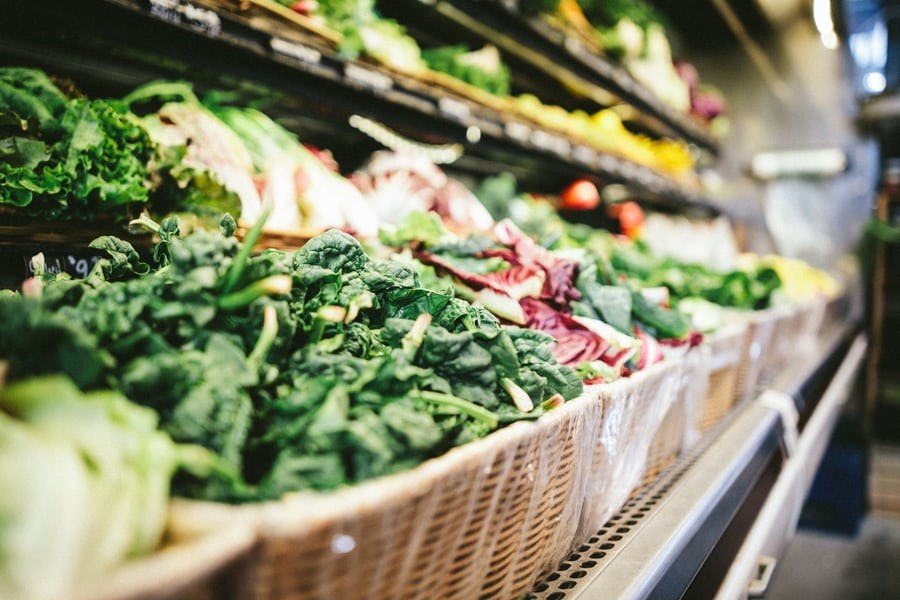Canada’s food producers say they need federal help to ensure domestic food security during the COVID-19 crisis.
“Canadian farmers need immediate, meaningful help from the Canadian government,” Canadian Federation of Agriculture president Mary Robinson said in a teleconference Thursday. “This is a potential tragedy.”
Robinson said getting food from fields to Canadians should be governments’ second priority after dealing with the health implications of the pandemic.
“We must ensure Canadians' food supply is secure,” she said. “It would be irresponsible not to sound the alarm about the crisis Canadian farmers are facing.”
Indeed, said Food & Consumer Products of Canada CEO Michael Graydon, the country’s food producers have had to deal with a spike in demand since the pandemic began.
Robinson said government needs to target funds toward the start of the planting season and to ensure there are enough farm workers available to complete that work.
Without help, food may be not planted, farmers may be unable to get food to processors and then onto grocery store shelves, Robinson said.
Robinson asked: “Will harvesting and processing be possible without sufficient labour or will crops rot in the fields as we have seen in other countries?”
The Canadian Cattlemen’s Association (CCA) in late March recommended Ottawa deem the pandemic a natural disaster under the AgriRecovery Program to help provide timely funding to farmers.
One area of assistance could be temporary foreign workers, Robinson said. Such workers are being taken to central isolation locations and can also be isolated on farms, she said.
Agriculture and Agri-Food Canada on April 13 announced $50 million to help farmers, fish harvesters and all food production and processing employers establish measures to follow the mandatory 14-day isolation period required of all workers arriving from abroad.
On April 14, the Canadian Food Inspection Agency received $20 million to support food inspection to ensure access to safe, high-quality food supplies.
Minister of Agriculture and Agri-Food Marie-Claude Bibeau said Ottawa has already made many significant contributions to the sector, including $5 billion into Farm Credit Canada, which has already resulted in over $2 billion in deferred loans to more than 2,000 producers and processors.
She said many government-wide responses, including the deferrals on GST, custom duties and income taxes, will also assist many farm and food businesses, and are being improved to help even further.
The minister encouraged farmers and food businesses to make use of the business risk-management programs targeted for assistance in tough times.
“All Canadians can fully appreciate the essential service of those women and men working on farms, in processing plants and throughout the food production chain, to provide us the best quality food during this critical time,” Bibeau said.
“We recognize our farmers and food businesses are facing a host of issues right now that are significantly straining their operations.”
She said the federal, territorial and provincial governments are working to support producers and processors to ensure Canadians’ access to high quality and affordable food.
“This is a top priority for our government,” she said. “Farmers and food businesses are doing a huge service to feed the nation and they can be confident that their government has their back.”Prince Edward Island Sen. Dianne Griffin has already suggested those out of work due to the pandemic could work on farms. She and several other senators have said it’s not enough to rely on foreign workers, never mind the costs and delays in quarantines.
Further, Robinson explained, farmers are seeing unexpected costs such as provision of health protections.
As well, she said, uncertainty around meat processing is leaving farmers with cattle they must look after.
The CCA said earlier in the week that processing capacity has been reduced throughout North America. That includes the High River, Alberta, Cargill plant which processes 36% of Canadian beef.
“These reductions in packing capacity will create challenges for Canadian beef farmers and ranchers, and additionally may have impacts at the consumer level depending on the length of interruptions, the association said.
The CCA submitted recommendations for changes to federal business management risk programs and recommended rebuilding the bovine spongiform encephalopathy (BSE or mad cow disease) framework to be implemented if a critical situation, such as a significant meat-packing capacity reduction, arises.
“We learned many lessons during the hard years of BSE, and it is time to implement the policies that previously helped us weather the storm,” CCA president Bob Lowe said.
The cattlemen have further recommended a set-aside program is to delay the marketing of cattle when processing capacity isn’t available. Under that scenario, farmers could hold cattle on maintenance rations, stretch marketing times out and be managed by existing packing capacity, until slaughter capacity can be regained.
“We also must look at and support all actions that can assist in our current situation. This could include increases in processing capacity at provincial packing plants and holding back cows so that we can focus slaughter on fed cattle - everything is on the table,” Lowe said.
More to come.
@jhainswo



